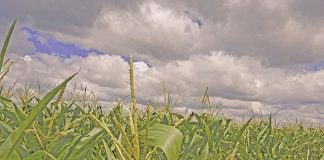The Department of Agriculture, Forestry and Fisheries (DAFF) said that, currently, the only registered vaccine against AHS in SA was produced by Onderstepoort Biological Products. AHS is a controlled animal disease in terms of the Animal Diseases Act 35 of 1984, and all suspected or confirmed cases have to be reported to the nearest State Veterinarian. Although non-contagious, AHS was spread through the bite of blood-sucking Culicoides midges.
Symptoms of AHS included equines developing very high fevers of up to 41°C, breathing difficulties, a frothy discharge that may pour from the nose, sudden onset of death, and a very high mortality rate of around 90%. “For the 2013 cycle, the AHS reporting season started in September 2012 and will continue to August 2013. This reporting period is chosen because AHS normally occurs during the summer months, and from December to May in particular,” said Lionel Adendorf of DAFF.

One of the symptoms of African horse sickness is a frothy discharge that may pour from the nose. Picture courtesy of the African Horse Sickness Trust
“During this season, 42 outbreaks of AHS were reported to date.” No less than 19 cases were reported in the Eastern Cape, nine in Gauteng, eight in KwaZulu-Natal, four in Mpumalanga and two in North West.” Equine owners were advised to vaccinate against AHS before the start of every rainy season that favours the breeding of Culicoides midges.
An additional protection measure was, for the duration of the AHS season, to stable equines from at least two hours before sunset until at least two hours after sunrise as this was the period that the midges were most active. Adendorf said, “Culicoides midges also colonise around stagnant water sources and efforts should be made to prevent pooling of water and to move animals away from water sources.”
For further information contact the African Horse Sickness Trust at Cell – 082 965 4082 (24 hours) or visit www.africanhorsesickness.co.za











